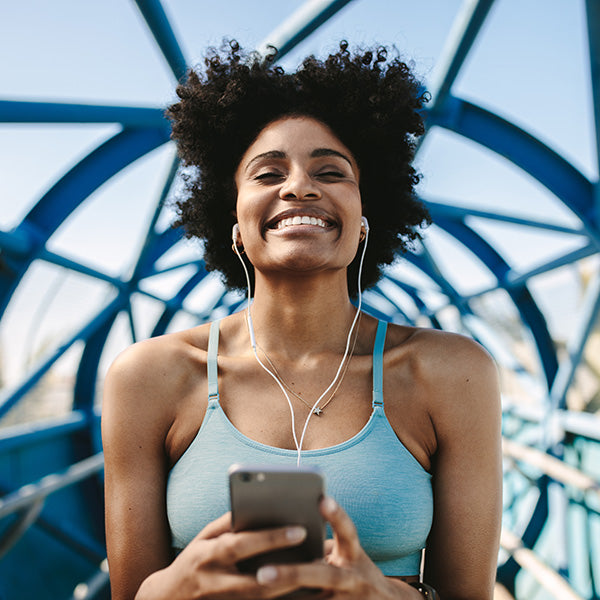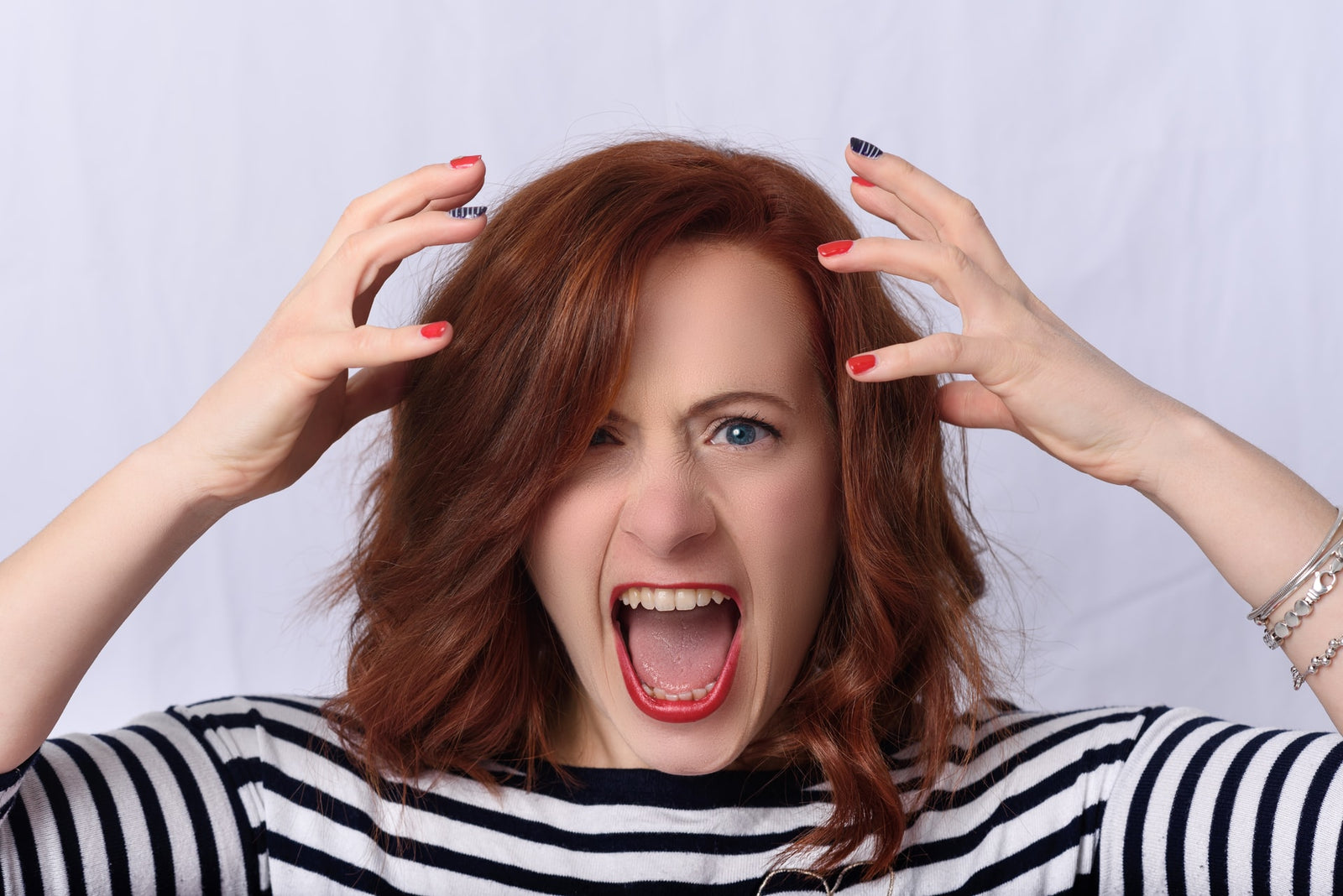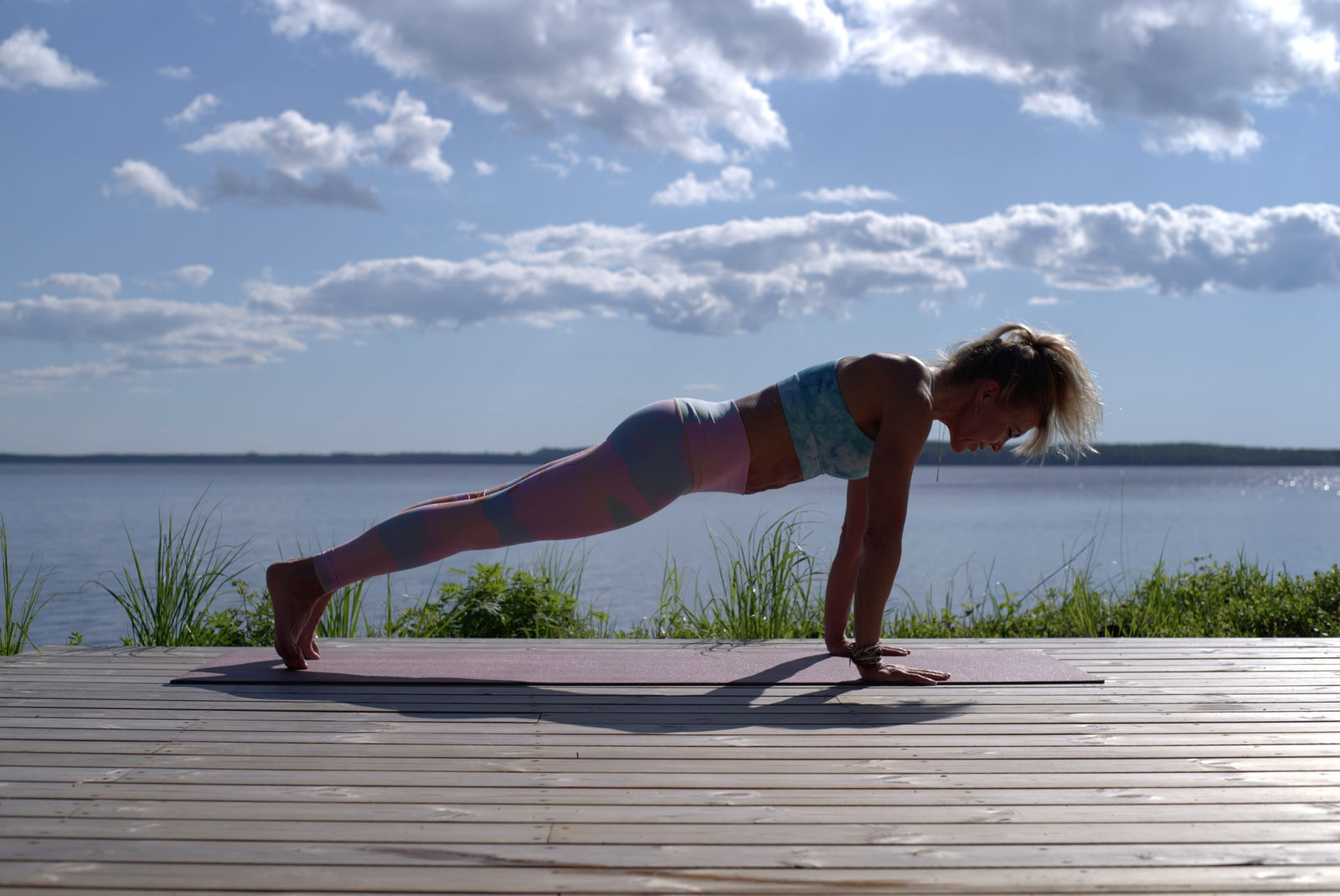Victoria Heath photo from Unsplash
Blue light has been getting such a bad rap especially in the context of sleep. Many believe that blue light gets in the way of having a good night sleep and causes a lot of tossing and turning at night.
But what is blue light and where can you get it? Can it really keep you from sleeping well? If so, what’s the explanation behind it?
What is blue light?
Let’s get a bit nerdy and pretend we’re all back in physics class. To understand what blue light is, you need to know that light is composed of electromagnetic particles travelling in waves.
Blue light is part of a wide array of colors in this light spectrum seen by the naked eye (the others being violet, indigo, green, red, orange and yellow). It is a short wavelength so it produces higher amounts of energy.
According to studies, prolonged exposure to blue light can result in eyestrain, fatigue, headaches, long-term eye damage, and sleeplessness.
What are the sources of blue light?
While present in sunlight, blue light also comes from digital screens. So when you stare at your computer screen at work the whole day, or spend hours on Instagram, then you may run the risk of suffering from the adverse effects of blue light. Here are the various sources of blue light:
- Television
- Smartphones
- Computers and laptops
- Computer monitors
- Tablets
- LED
- Fluorescent lighting
- Gaming systems
Natural Blue Light vs Artificial Blue Light
Blue light wavelengths are all around us. If you’re wondering why the sky on a beautiful day is blue, then you can thank blue light for that.
Natural blue light is great for uplifting the mood, having an overall feeling of well-being, and regulating the circadian rhythm – or our body’s sleep and wake cycle. Blue light is also the reason why you feel so much more alert, energized, and mentally sharp during the day.
But it’s also the reason why you may be having a hard time falling asleep at night. Too much blue light may keep you wide awake and make it tricky to wind down.
Artificial blue light from electronic devices may mess up with your circadian rhythm, because it prevents your system to prepare for snooze time and slow down the production of melatonin, a hormone that helps you become more sleepy.
The problem of artificial blue light impeding sleep is unfortunately quite widespread. Just look at these stats from Blue Tech Lenses: [1]
- 43% of adults have a job that requires prolonged use of a tablet or computer
- 74% of teens between the ages of 12 to 17 use electronic devices at least occasionally
- 70% of adults that regularly use electronic devices report symptoms of digital eye strain
- 93% of teens have access to or have a computer.
How does blue light affect sleep?
Being exposed to blue light - especially at night - slows down the secretion of melatonin, which affects the sleep cycle. While melatonin is naturally produced, it can also be found in supplements.
The circadian rhythm – or the body’s internal clock – gets signal from the environment, usually in the form of light. The presence of blue light – whether during daytime or at night – affects this. Getting blue light during the day brings about alertness and general wellbeing. But at night, too much of it can keep you from having a proper snooze.
So if you’re used to binge-watching in bed or checking social media before sleeping, then you’re allowing blue light to affect your internal body clock. [2, 3]
A study conducted at the University of Toronto compared the melatonin levels between people wearing blue-light goggles that exposed to bright lights indoor and those exposed to dim light sans goggles. The research is quite telling, in that the melatonin levels are just about the same between the two, showing that blue light suppresses melatonin secretion. [4]
Another study conducted by Harvard researchers showed a comparison between two groups - those exposed to blue light for 6.5 hours and another exposed to green light by as much the same brightness. The result showed that the first group suffered from suppressed melatonin secretion for about twice as long and had their circadian rhythm moved by twice as much as those in the green light group. [4]
How can you protect yourself from blue light for better sleep?
- Discipline yourself to avoid using electronic devices before bedtime. Set an alarm or notification for a blue-light-free hour (or two) before sleeping. Read a book instead of looking at your phone.
- Use red or orange lights at night, which are friendlier to your circadian rhythm than blue light.
- If you use a lot of blue light from electronic devices as a night-shifter, then wear blue-light glasses or goggles to reduce exposure.
- Go out and expose yourself to bright sunlight during the day! It will bring a happier mood and mental sharpness. Before starting work at home, consider going for a walk with your caffeine fix.
- Make your bedroom conducive for sleep. Set it to the temperature that is right for you and minimize as much noise and lights as possible. Consider using an eye mask.
Other ways to sleep better
There are also many other ways you can sleep better. Remember, blue light is only part of the story. Make sure that you supplement your blue light protection with proper diet, enough exercise, and other sleeping hacks.
You may also consider supplementing your body’s natural melatonin production with our sleep formula, Sleep Well. It's an herbal sleep supplement made with natural ingredients safe for everyday use. Unlike other sleeping pills & OTC medicine, Sleep Well doesn’t make you dependent for sleeping. It uses ingredients backed by nature and proven by science to help you maintain a balanced sleep cycle schedule without damaging side effects. Buy it here.
Sources
[1] https://blutechlenses.com/blog/what-is-blue-light/
[2] https://www.ncbi.nlm.nih.gov/pmc/articles/PMC3047226/
[3] https://www.ncbi.nlm.nih.gov/pubmed/21552190
[4] https://www.health.harvard.edu/staying-healthy/blue-light-has-a-dark-side








